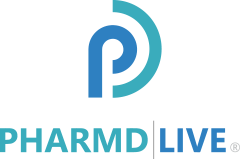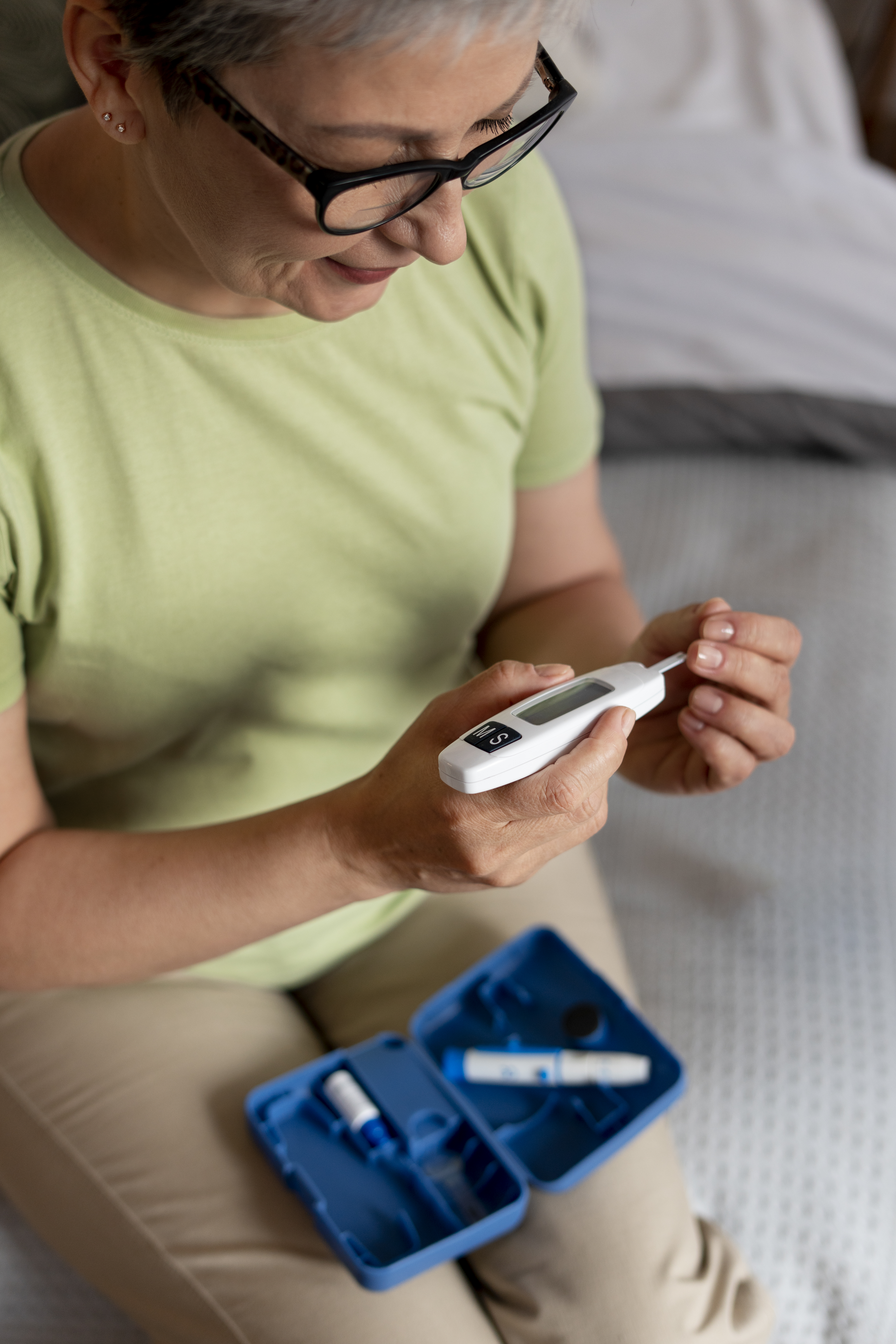By Matthew Gehrlein, PharmD Candidate and PharmD Live Student Intern
What is Medication Risk Management?
All medications have risks and benefits. The FDA, physicians, providers, and pharmacists all work to ensure that the balance of risks and benefits is favorable to each patient when they take their medication. The practice of assessing risks versus benefits and developing tools to minimize risk while preserving benefits is known as Medication Risk Management (MRM).1
In diabetes, patients often take multiple medications. MRM is especially important in diabetes care to reduce the risk of potential complications while optimizing outcomes for patients. Monitoring patients properly for high and low blood sugar can avoid two of the most common risks while using medications to treat diabetes. Below are ways to identify when these adverse events occur. Remote patient monitoring is a valuable tool to keep your patients within prescribed guidelines.
Managing Low Blood Sugar
Identification and initial management
The most serious medication-related adverse event in diabetes management is low blood sugar, otherwise known as hypoglycemia. Low blood sugar may present as shaking, sweating, nervousness or anxiety, irritability or confusion, dizziness, or hunger.2 A blood sugar level below 70 mg/dL is considered low, while blood sugar less than 55 mg/dL is considered severely low.
Always check your patient’s blood sugar if you think it is low, or treat it if you cannot check. To treat a blood sugar between 55-69, use the “15-15” rule. Consume 15 grams of carbohydrates and check your blood sugar after 15 minutes. Repeat the procedure until the blood sugar exceeds 70 mg/dL, and advise a good meal or snack to maintain appropriate blood sugar. If blood sugar is below 55, injectable glucagon is the best option. Have your patient seek medical attention after receiving a glucagon injection. Consider whether your patient should carry a glucagon kit if you have not already prescribed one.
Insulin
Too much insulin can cause low blood sugar. Insulin is very potent, and receiving a few extra units may cause blood sugar to fall to dangerously low levels. Have patients double-check syringes and pen needles to ensure the number of units administered is correct.
Other medications
Medications not intended for use in diabetes treatment can, in rare cases, cause low blood sugar. These include:
- beta-blockers (like atenolol or propranolol), quinidine, indomethacin, and
- antibiotics (fluoroquinolones and trimethoprim-sulfamethoxazole).3
Make sure that your patient understands that this is why you ask about all medications the patient is taking.
Managing High Blood Sugar
Identification and initial management
High blood sugar or hyperglycemia can be a severe side effect in diabetes management. Explain to patients that high blood sugar can cause them to feel tired and thirsty, have blurry vision, and can make them feel like they need to urinate more often.4 If the blood sugar is above 240mg/dL, use a urine ketone test. The presence of ketones can be a sign of diabetic ketoacidosis, which is a medical emergency.
Use the teach-back method to be sure patients understand the best way to treat hyperglycemia is prevention. Have them develop and share a meal plan that helps them identify the number of carbohydrates they consume. Encourage them to work with you and the pharmacist to ensure they appropriately use the prescribed insulin and medication regimen.
Insulin
Hyperglycemia may occur if the patient receives less insulin than needed. If your patient has an insulin pen, remind them to prime it before each use.5 To properly prime, attach the needle to the pen, then turn the dial to two units. Point the needle up and push the knob to see at least a drop of insulin emerge from the needle. Without priming the pen, the patient may receive less insulin than expected if there is an issue with the pen or the needle.
Other medications
Medications not used to treat diabetes may cause hyperglycemia. These include:
- antibiotics (dapsone, rifampin),
- antipsychotics (olanzapine, risperidone, clozapine, quetiapine, aripiprazole, ziprasidone, lithium),
- phenytoin,
- corticosteroids (prednisone, methylprednisone),
- estrogens,
- oral contraceptives,
- thyroid hormones (Synthroid, levothyroxine), and
- ritonavir.6
Again, make sure that your patient understands why you ask about all medications the patient is taking. It doesn’t always make sense that they are putting themselves at risk.
Conclusion
Managing diabetes is a complex balance of lifestyle, diet, and medications. Proper use of medications can help avoid the risks that accompany their use. Always ask if your patients have questions about medications, especially new ones that may affect blood sugar. In addition, you might recommend they wear a medical ID to help emergency personnel identify the patient has diabetes if they have an adverse drug event and can’t speak for themselves.
PharmD Live partners with medical practices, healthcare systems, hospitals, and ACOs to deliver CCM and RPM telehealth programs for Medicare patients with chronic conditions. Our care coordinator/clinical pharmacists use our proprietary AI platform to benefit your patient’s health outcomes, as well as your bottom line.
Remote therapy management and our diabetes prevention program reinforce physician recommendations. When patients increase their participation in setting and achieving goals, they more often succeed in preventing diabetes II.
Our pharmacists can produce complete and auditable reports for their partners to see patient engagement and claim total reimbursements from CMS. We provide seamless reporting to help physicians with their quality improvement plan and CMS submission. For more information, call +1 (202) 765-1429 or visit pharmdlive.com.
About the author:

Matthew Gehrlein is a PharmD/MBA candidate at Texas Tech University Health Science Center School of Pharmacy. He has experience working in retail and hospital pharmacy, and clinical research. Matthew’s interests include infectious diseases, critical care, and cardiology. After graduation, he plans to apply to residency and pursue a clinical specialty. In his free time, he enjoys spending time with his wife and daughter, cooking, and playing ultimate frisbee.
Sources
- Center for Drug Evaluation and Research. Managing medication risks. U.S. Food and Drug Administration. https://www.fda.gov/drugs/risk-evaluation-and-mitigation-strategies-rems/fdas-role-managing-medication-risks
- How to treat low blood sugar (hypoglycemia). Centers for Disease Control and Prevention. https://www.cdc.gov/diabetes/basics/low-blood-sugar-treatment.html. Published March 25, 2021.
- Drug-induced low blood sugar: Medlineplus Medical Encyclopedia. MedlinePlus. https://medlineplus.gov/ency/article/000310.htm.
- Manage blood sugar. Centers for Disease Control and Prevention. https://www.cdc.gov/diabetes/managing/manage-blood-sugar.html. Published April 28, 2021.
- Insulin Pen Injections. Cleveland Clinic. https://my.clevelandclinic.org/health/treatments/17923-insulin-pen-injections.
- Medications that affect blood sugar. TriHealth. https://www.trihealth.com/institutes-and-services/diabetes/living-w-diabetes/medications/medications-that-affect-blood-sugar.








